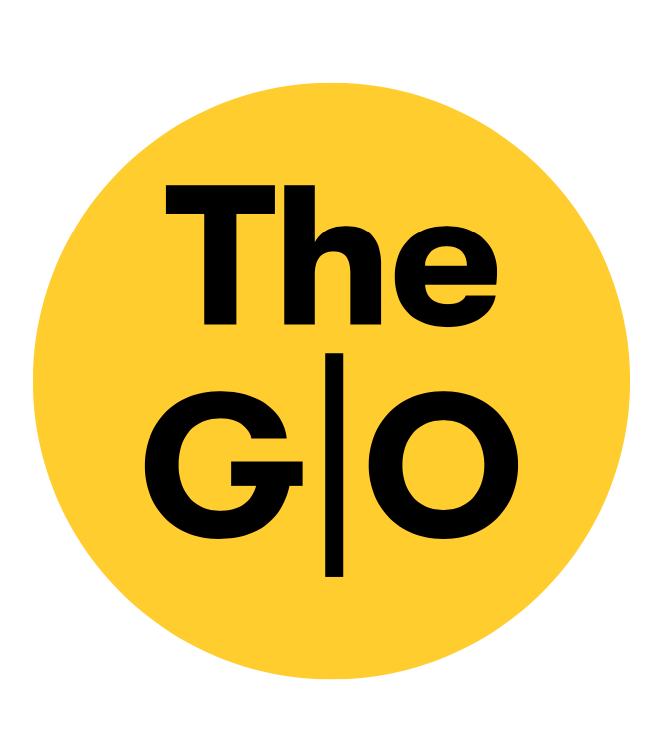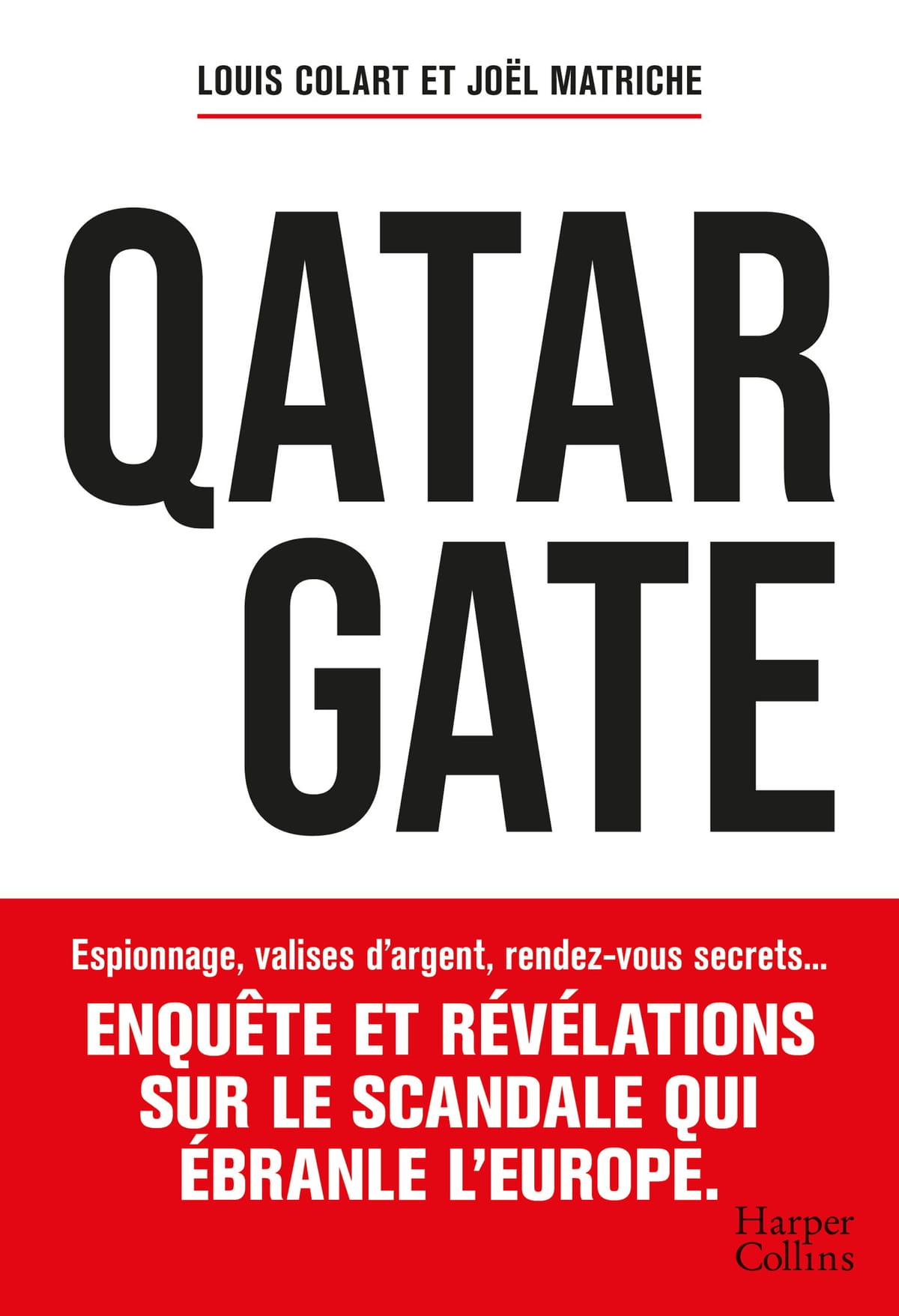#168 THE G|O BRIEFING, FEBRUARY 8, 2024
Is India Fueling “drama” at the WTO? | Defunding UNRWA is Morally Indefensible | Qatargate Keeps Popping Up in the News
Friends,
Today in The Geneva Observer:
“Drama” in Geneva Is What Ngozi Asked for—and It Looks Like She’s Got It
Jamil Chade reports on India’s hard line on agricultural subsidies and fisheries, and how New Dehli’s position has some World Trade Organization members worried that it could disrupt the upcoming Ministerial Conference (MC13) due to open in Abu Dhabi on February 26.
It’s time to “dramatize” what’s happening at the World Trade Organization (WTO) in Geneva, to deliver concrete outcomes at the 13th Ministerial Conference (MC13), Director-General Ngozi Okonjo-Iweala told the members of the Trade Negotiations Committee (TNC) in December. To achieve this, negotiators “need to conclude as much of the negotiations we can in Geneva” before the start of MC13, slated to open in Abu Dhabi on February 26, the D-G exhorted.

She may have gotten more than she bargained for. Negotiators are hard at work. A draft ‘outcome document’—MC13's final communiqué—is circulating, with a large number of unresolved questions in brackets. According to diplomatic sources spoken to by the Geneva Observer, it appears that on two issues of major importance that have prevented the WTO from claiming success over the last few years—agriculture and fisheries—India is ready to play the role of troublemaker, at the risk of derailing MC13. New Dehli is sticking with demands on both issues that are seen as unacceptable by a majority of members—including by most of the emerging economies represented in the 'Cairns Group' of agricultural exporting nations. “It might just be gamesmanship, a willingness to keep everything up in the air until the last moment,” but “India’s hardline position and strategy is difficult to read,” a senior trade diplomat says.
Other WTO and trade watchers point out that India might be flexing its muscle ahead of the MC13 as it is now benefiting from China’s economic woes, and has seen global markets increasingly bet on India over China in what some observers see as a long-lasting shift.
The latest point of contention revolves around the stockpiling of domestic food supply by countries in emerging economies, in order to to keep food costs stable and to prevent sudden price increases that can threaten social and political stability. De facto, government purchases of commodities can be considered a form of subsidy; they also create a market distortion for food-exporting countries.
As it stands today, trade negotiators tell The G|O, the most challenging issue is how to achieve a permanent solution for regulating the practice, as India mostly opposes limitations. A special safeguard mechanism (SSM), which would allow developing countries to raise tariffs temporarily in the event of a sudden surge in import volumes or a drop in prices, is also being discussed.
For the US and the EU, but also in some emerging countries, the concern is that massive food stockpiling by India would serve to boost its own exports and increase its international competitiveness. They therefore propose that the issue be discussed as part of the wider negotiations around the WTO’s agricultural subsidies.
By some estimates widely circulated by trade negotiators, India has put aside over US$ 40 billion in agriculture subsidies over the last two years. The impact of such programs on world trade is hard to assess, but trade negotiators tell The G|O that transparency is lacking in the way these national programs are implemented.
WTO negotiations on agricultural trade began in 2000 under Article 20 of the Agreement on Agriculture. Ministerial conferences in 2015 and 2013 delivered some outcomes, while the most recent conference in 2022 saw ministers agree to a declaration on food security and a decision on food aid as part of a broader package. However, there are several unresolved topics on the agenda where negotiators have yet to reach agreement.
At the end of January, a compromise text was put forward, in the hope that it might form the basis for a deal. If approved, it would establish the modalities of broader negotiations on the new rules for the agriculture trade, which would take another two years to be completed.
The clash between India and exporting countries is not new. At the beginning of 2023, New Delhi was accused of not having given answers to other trading partners at the WTO on its minimum support price (MSP) programs for food grain.
Canada, the EU, Australia and the US also point out that rice subsidies in India have breached prescribed limits. In fact, India’s subsidies exceeded the 10% ceiling (of the total value of rice production) for rice support. The Indian government says that, being a developing country, it had the right to do so, without that making it a target for legal action.
Multiple sources confirm that the situation is undoubtedly tense, with India informing other countries that it will not discuss a new agricultural deal until the subsidy issue is resolved.
According to media reports, India will also block any move to scrap subsidies for the country’s estimated 9 million families of poor fishermen. WTO members agreed in 2022 to strongly curb harmful subsidies for unregulated fishing to ensure the sustainability of the world’s fish stocks, which are at risk of collapsing due to overexploitation.
New Dehli says its subsidies are insignificant compared to those of developing countries.
-JC, with additional reporting by David Jenny
Suspending Funding for UNRWA, the UN’s Refugee Organization in Gaza, is “an Indirect Violation of the International Court of Justice’s Decision—and Morally Indefensible.”
In its January 26 decision in South Africa v. Israel, the International Court of Justice (ICJ) ruled that “the State of Israel shall take immediate and effective measures to enable the provision of urgently needed basic services and humanitarian assistance to address the adverse conditions of life faced by Palestinians in the Gaza Strip.” The institution best suited to provide “urgently needed basic services and humanitarian assistance” to Palestinians in the Gaza Strip is UNRWA, the United Nations Relief and Works Agency for Palestinian Refugees in the Near East. 16 countries, including the United States and other major donors, have suspended their voluntary contributions to UNRWA. I argue that the move to suspend funding for the organization is an indirect violation of the ICJ’s decision and morally indefensible.
If the Court was concerned with the catastrophic situation of Palestinians in Gaza, and UNRWA is the major organization that provides basic services and humanitarian assistance, then the 16 countries that suspended funding are indirectly failing to provide basic services as ordered by the Court.
Israel itself will never “take immediate and effective measures” to help Palestinians as the Court ordered. Its continued assault in Gaza is doing exactly the opposite. So why couldn’t Israel use UNRWA to carry out the Court’s provisional measure?
Publicly, Israel has castigated the Agency. “It's time the international community and the UN itself understand that UNRWA’s mission has to end,” Israeli Prime Minister Benjamin Netanyahu told a group of ambassadors to the UN at his office in Jerusalem, as reported on February 1 by the Times of Israel. He was obviously upset that lawyers who represented South Africa at the ICJ cited UNRWA statements to support their case. “It [UNRWA] has to be replaced by some organization or organizations that will do the job,” he added. And it is surely no coincidence that the suspension of funding for UNRWA happened on the same day as the ICJ’s decision to call for five provisional measures for Israel “to enable the provision of urgently needed basic services.”
Some Israelis do recognize the importance of UNRWA. “On the surface, Israel is really critical of UNRWA,” Anne Irfan, a lecturer at University College London, told National Public Radio, but behind the scenes, “they see it as preferable to the alternative. UNRWA provides the services which would otherwise [be the responsibility of] Israel as the occupying power.” A high Israeli official was quoted in the Times of Israel as saying: “Israel does not push for [UNRWA’s] closure because there is no alternative.” Even the Israeli ad hoc Judge in the case, Aharon Barak, voted in favor of the Court’s specific call for Israel “to enable the provision of urgently needed basic services and humanitarian assistance.” (The only dissenting vote in the 16-1 decision on this provisional measure was by Judge Julia Sebutinde from Uganda, who voted against all the Court’s provisional measures.)
The suspension of funding by UNRWA’s major donors further weakens whatever hope there was to alleviate the dire conditions faced by Gazans, recognized by the Court. If Israel itself will not “take immediate and effective measures,” and UNRWA is underfunded, the Court’s injunction will not be carried out. As UNRWA chief Philippe Lazzarini said: “If the funds continue to be suspended, we will be forced to close our activities at the end of February, not only in Gaza, but also in the entire region.” Hence, the 16 countries who have suspended their funding have acted counter to the spirit of the Court’s 16-1 decision to provide basic services to almost two million people, albeit indirectly.
UNRWA has always been a controversial agency, since its founding in 1949 by the UN General Assembly. It was created to provide relief to Palestinians suffering from the creation of Israel and the ensuing conflicts. Unlike the United Nations refugee agency, UNHCR, which is responsible for refugees worldwide, UNRWA’s has always had a singular focus on Palestinian refugees located in Lebanon, Jordan, Syria, the West Bank, and the Gaza Strip.
The fact that UNRWA is mandated to deal with Palestinians only has been the cause of historic anti-Palestinian and pro-Israeli biases against the organization. For example: In 2018, under President Trump, the United States suspended funding to UNRWA when at the time roughly 200,000 children were enrolled in UNRWA schools and its roughly twenty health clinics treated millions of patients. Presidential candidate Nikki Haley, former US Ambassador to the United Nations, recently argued on Fox News against President’s Biden’s 2021 restoring funding for UNRWA: “I sat in President Trump’s office and said: ‘We have got to stop the money to UNRWA,’” she recalled proudly.

The US may have a historically inconsistent position when it comes to funding UNRWA, but some of UNRWA’s most traditionally loyal supporters have also suspended contributions. The largest single donor to UNRWA, Germany—which has contributed nearly a billion dollars to UNRWA in the last five years—is among the 16 countries to withdraw funding. “UNRWA is not making a contribution to a peaceful solution,” Max Lucks of the Green Party said. “Not a single cent from Germany should reach teachers who glorify the terror of Hamas,” he added, as reported in the National Review.
Can the 16 countries suspending support for UNRWA be held responsible for not supporting the major organization most capable of providing basic needs to Palestinians in the Gaza Strip? If countries can be held responsible for providing material support to a country committing genocide, shouldn’t they also be held responsible for not providing material support necessary for basic services and humanitarian assistance to two million people, vital for their survival?
There should be no doubt about the importance of UNRWA. Several heads of UN agencies have expressed dire concerns about the suspended funding. “Withdrawing funds from UNRWA is perilous and would lead to the collapse of the humanitarian system in Gaza, which would have far-reaching consequences,” warned a joint statement from Martin Griffiths, Under-Secretary-General for Humanitarian Affairs, Volker Türk, High Commissioner for Human Rights, Achim Steiner of the United Nations Development Programme (UNDP), Cindy McCain of the World Food Programme (WFP) and Tedros Adhanom Ghebreyesus of the World Health Organisation (WHO), as reported by Swissinfo.
Is the funding suspension valid? Israel accuses 12 UNRWA employees of taking part in the October 7 Hamas attack, in one way or another. Nine of the accused staff have been dismissed. These allegations are shocking, but to put the number 12 in perspective: UNRWA employs 13,000 people in Gaza, 30,000 in the region. The allegations concern 0.1% of the UNRWA employees in Gaza. Like Israel’s disproportionate killing of over 25,000 Palestinians and destruction of most of Gaza’s infrastructure in response to October 7, the suspension of UNRWA’s funding is disproportional and biased—what Lazzarini has called “additional collective punishment.” PassBlue has called the allegations themselves “murky.”
So, whilst negotiators are working to find a peaceful settlement to the current conflict with a suspension of fighting, and as the International Court of Justice finds “plausible” reasons to decide preliminary measures to prevent genocide, the major relief organization in the region is being undermined. And the people of Gaza, once again, are the ones who suffer.
Whether responsibility, either for providing material to support Israel’s “plausible” acts of genocide or for failing to make voluntary contributions to UNRWA to provide basic needs to Palestinians, will ever be legally punished is improbable. But there is a definite moral responsibility in both cases.
The heroic work of UNRWA should be recognized and supported. Even the US State Department, which did not wait for the results of an investigation before it “temporarily paused” additional funding, recognized that UNRWA “plays a critical role in providing lifesaving assistance to Palestinians.”
Suspending funding to an organization at the very moment it is most needed is morally indefensible. 152 UNRWA employees have lost their lives since October 7. The organization deserves continued financial support, not continued attacks and defunding. UNRWA, like the Palestinian people, deserves better.
-DW
Related content:

New Surprises and Revelations in the Qatargate Investigation
The Belgian investigation into Qatargate, the alleged corruption scandal that has rocked the European Parliament and global unions, remains rife with surprises. Francesco Giorgi, one the main protagonists of the alleged cash-for-influence game is now asking for the entire case to be thrown out, citing “irregularities” in the way the investigation was conducted. To buttress his case, Giorgi and his lawyers filed a formal complaint that includes the secret recording of a conversation between Giorgi and a Belgian police investigator. In the recording, available in French below, the Belgian investigator states that he “knows Panzeri has been lying to police.” A former member of the European Parliament, Pier Antonio Panzeri, the mastermind of the alleged corruption scandal, was granted special status by the prosecution after he decided to fully cooperate with the Belgian authorities.
On Monday, the prosecutor’s office said it took note of the remarks attributed to a police officer and recorded without his knowledge, adding that its investigation work focuses precisely on “verifying the veracity of statements” made by the person who struck a plea deal, and whether all the legal requirements were met for that agreement to be approved.
-PHM
Related story:

Elsewhere, but Not Too Far, in the Ecosystem
On Friday, February 5, Qatar’s Minister of Labour, Dr. Ali bin Samikh Al Marri, met with the Director-General of the International Labour Organization (ILO), the Qatar Labour Ministry website informs us.
According to the Ministry of Labour communiqué, the two men “talked about various ways to enhance collaboration between the State of Qatar and the International Labour Organization and discussed strategies for their future growth and improvement.” The Qatari Minister and ILO D-G Gilbert Houngbo also “went over [...] the key advancements and changes in the working environment in Qatar.”
The communiqué continues:
“[Dr. Al Marri] stressed that the technical cooperation program between the ILO and the State of Qatar has achieved over the past years multiple successes that have had a positive impact on the Qatari work environment, especially after the efforts made by the ILO Doha office project to cooperate closely with the Ministry of Labour.
“[The Minister] emphasized the State of Qatar's gratitude for the collaborative endeavors undertaken through the exceptional partnership with the ILO throughout the execution of the technical cooperation program, which concluded in late 2023. He reiterated the commitment to maintain cooperation with the ILO in various aspects of the labour sector.”
Dr. Al Marri's recent visit to Geneva was not posted on the ILO’s website. It remains unclear why the new agreement has not been signed and what is holding it up. In a written response to The G|O's questions, an ILO spokesperson told us that “both parties are looking forward to signing the agreement for the third Phase of the Technical Cooperation Programme in the very near future [...] A public announcement will be made when the agreement is officially signed.”
-PHM
Today's Briefing: Jamil Chade - Daniel Warner - Philippe Mottaz -
Guest Essay: Shlomo Ben-Ami
Editorial assistance: David Jenny
Edited by: Dan Wheeler
©The Geneva Observer 2024 - All rights reserved.



